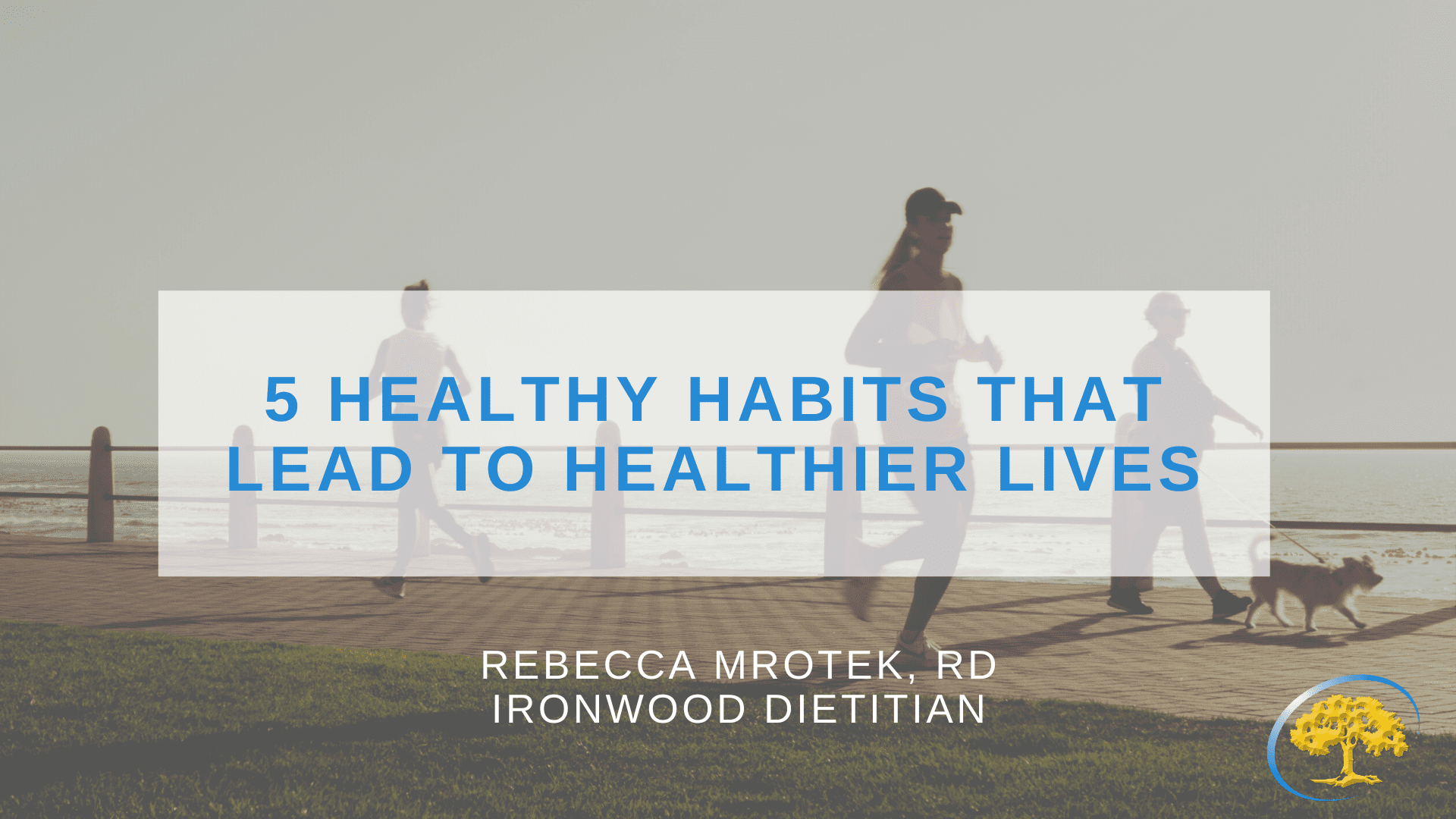
Posted 2 years ago
5 Healthy Habits that Lead to Healthier lives
The basics of healthy living is an assumed understanding of people’s knowledge. Each individual comes from a different background where health is defined in a variety of ways. Maybe health is a prayer in the morning or volunteering at the soup kitchen every week. For the person that doesn’t stop moving day to day, health can be taking 30 minutes to relax every day. For the person that works through their lunch, health can be sitting with coworkers or taking a brisk walk during break. The notion that one behavior can be universally a “healthier habit” could be argued, but there are some decisions in life that promote healthier living throughout the lifespan. Researchers at Harvard T.H. Chan School of Public Health found that when looking at clinically “healthy” people (a.k.a, lived the longest) they had these attributes in common:
#1 Balanced diets:
the word “balanced” is used too often without explanation. Balance and moderation are synonymous with one another. Balanced eating doesn’t just come from one meal or one week of eating nutritious foods, balance is built on a continuum. Balance doesn’t form when we deny our cravings, eat only fruits and vegetables, ruminate over foods, and feel unsatisfied after meals. Balance comes when there is a harmonious relationship between the food we eat, our thoughts surrounding food, and the effect these foods have on our body. It is a mind, body, and spirit endeavor not built by staying on one end of the spectrum. How this looks for you will vary from someone else, but researchers found that the best health outcomes occur when a diet filled with these foods are consumed the majority of the time (making sure we are also leaving room now and again for our sweet tooth or salty pleasures):
- 3-4 servings of vegetables a day
- 1-2 servings of fruit a day
- 20-35% of calories from fat a day
- Variety of foods
- At least 3 servings of whole grains
- Adequate protein for your body weight (~.8-1.0 g/kg of body weight average, 1.2-1.5 g/kg for illness)
#2. At least 30 minutes a day of activity:
there is an exhausted list of benefits from physical activity- improved mood, better sleep, bowel movement regularity, increased cardiovascular health, the list goes on. How you exercise is completely up to you. Are you starting to see this pattern of individualized health? Some may love to swim, and others may enjoy a treadmill at the gym. Whatever you chose for your exercise, make sure to elevate the heart rate with at least moderate activity. If you are finding difficulty making time for exercise, break those 30 minutes up into three segments of 10 minutes. It doesn’t have to be done all in one, wake up 10 minutes early before work and walk around the neighborhood. Take 10 more minutes during your lunch break, and 10 minutes after dinner with the family to walk together. That was an easy 30 minutes done in one day. Aim for a variation of strength training and cardio to build strong bones and heart!
#3. Normal BMI (18.5-24.9):
BMI is calculated using height and weight. There is some wiggle room for BMI, as we are not all built the same and it doesn’t account for muscle mass; but, researchers found that those classified as normal BMI were most associated with a longer lifespan.
#4. No smoking:
There is no moderation of smoking, just don’t do it!
#5. 1-2 alcoholic drinks for men and 1 for women a day:
Did I just say you can drink- yes, yes I did. There is strong evidence surrounding moderate red wine drinking and a decreased risk of comorbidities like cardiovascular disease. Here is that word again, the caveat- moderation. Don’t go out this weekend and have 5 shots of tequila and tell everyone that a dietitian told you to, because I will deny it!
One serving of alcohol is equivalent to:
-
- 12 oz of beer
- 5 oz wine
- 1.5 oz of hard liquor
These five habits led to a 14 year longer life for women and 12 year longer for men. If only taking part in one of these habits, lifespan extended by two years for both sexes. This is so important to note. You do not have to go out tomorrow and change your whole life to extend your life. Making small changes can have a major impact on your health.
Adapted from health.harvard.edu
